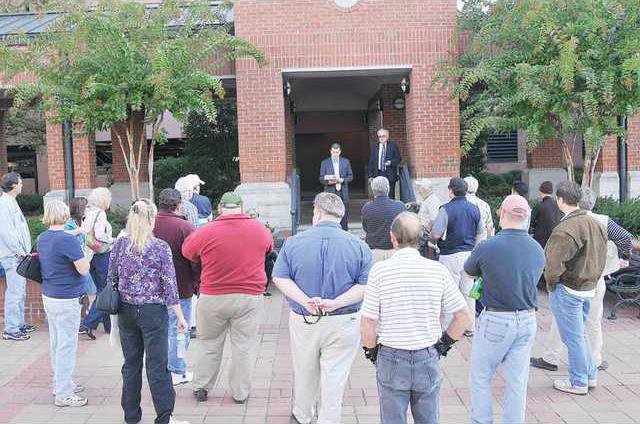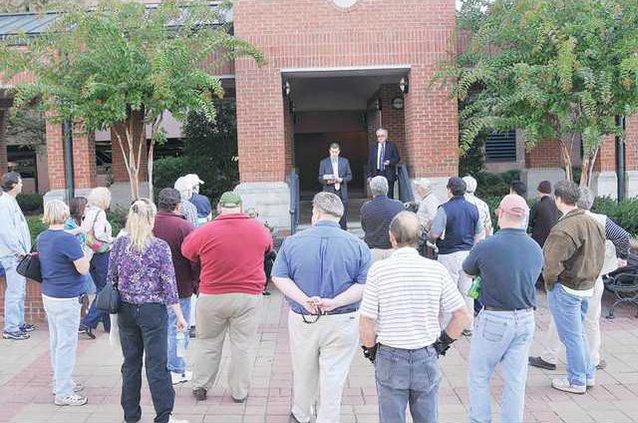While there have been a steady number of foreclosures on residential mortgages, in the last few months, an increasing number of banks have been foreclosing on properties owned by builders and developers.
This week, United Community Bank, the Blairsville-based bank holding company, announced that it will report a $40 million loss in the third quarter due to a deteriorating residential construction portfolio.
"In light of this environment, with disappointing summer sales and increasing inventories in the marketplace, we have taken steps to dispose of some of our larger exposures before surplus real estate inventory valuations deteriorate further," said Jimmy Tallent, chief executive of United Community, the state’s third-largest bank holding company.
A spokesman for the Georgia Bankers Association, David Oliver, said it is loans related to residential development and constructions that is hurting the state’s community banks.
"For the most part, the banks that operate and are based here weren’t involved in subprime lending, because they don’t do a lot of specific mortgage lending," Oliver said. "For most of our banks, the problem they’re having is with builder and developer loans that they made to good builders and developers that they had done business with for a long time. They are a victim of the real estate marketplace right now."
In a typical situation, a bank makes a loan to a builder to fund construction of a home, which can take six months to complete. The bank allows the builder a period of time to market the home and the builder makes interest payments on the loan. For a time, banks were willing to extend those terms while builders sought buyers for their completed homes.
As time ran out, builders faced two options: Foreclosure or surrendering the property to the bank.
"Many of the developers have now gone through their interest carry that was prebuilt into their loans," said Frank Norton Jr., a Gainesville real estate executive who studies economic trends. "Some have reached negotiated settlements with the bank. We have seen some deeds offered in lieu of foreclosure and some foreclosures."
Norton said the process is to be expected and he calls it "cleansing of the system."
He said the trend of builder/developer foreclosures likely is to continue through the end of the year and then taper off.
Most of the foreclosures have been finished houses, followed by developed lots, Norton said.
While builders have been suffering the process for more than a year, banks now find themselves suddenly owning foreclosed properties, some of which have declined in value from the original loan amount.
Oliver said community banks may get some help through the controversial $700 billion bailout passed this month by Congress and signed into law by President Bush.
"There is a potential for help, but as for immediate impact, we think there is little at this time," Oliver said.
He said language in the bailout bill allows banks to sell troubled loans made to builders and developers into the plan.
"There are some concerns that there will be enough of the (federal) funds to go around when it gets to smaller banks in smaller communities," Oliver said.
"Secondly, it gets down to a decision the bank is going to have to make and that is whether they want to so in a way that the Treasury Department has a direct equity or ownership stake in their company that the legislation requires," he said, adding that it may be in the banks to sell the distressed property to an interested party.

